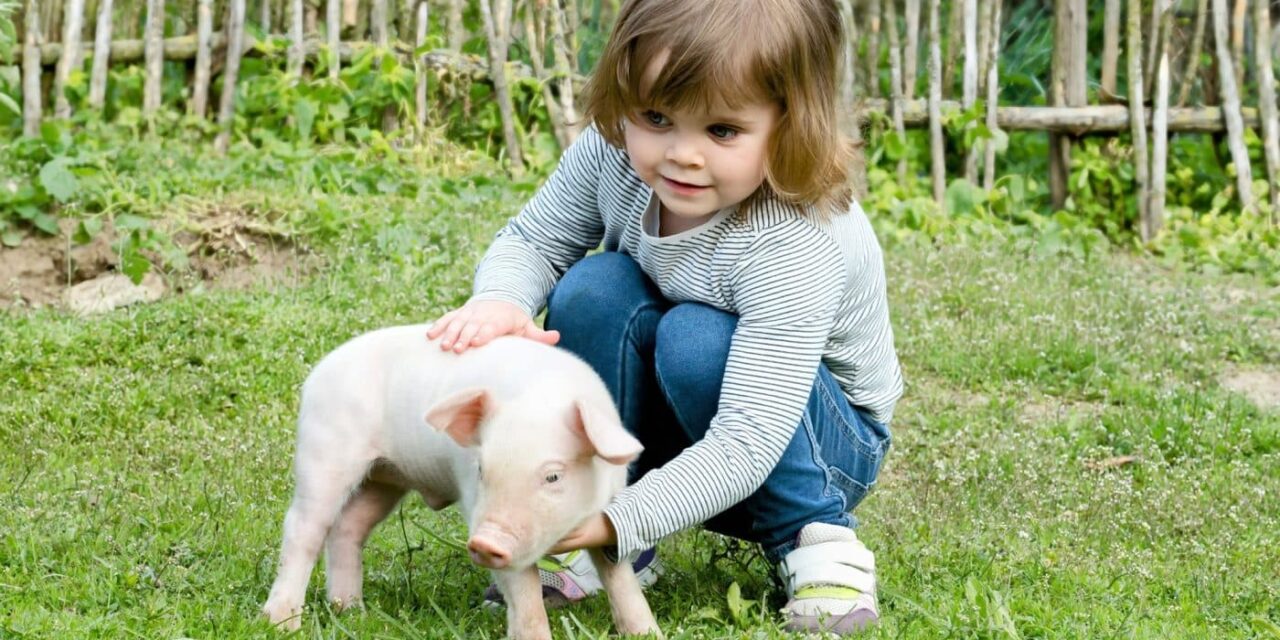In an intriguing study, researchers from SWPS University have uncovered a surprising link between naming farm animals and children’s attitudes toward meat consumption. The study suggests that when young children are introduced to animals with distinct names and individual characteristics, they are less likely to view them as food.
The Study: Turning Animals into Friends
The research, led by Dr. Aleksandra Rabinovitch from the Faculty of Psychology at SWPS University, delves into how assigning identities to animals can affect children’s perceptions. The study explored how giving farm animals names like Cluck the chicken, Tom the turkey, and Penny the pig influences children’s willingness to eat them.
Dr. Rabinovitch notes that naming animals and highlighting their unique traits can make them appear more similar to humans, fostering a sense of connection and empathy. This concept is not far-fetched, as children’s media often depicts animals with distinct personalities and preferences, such as in the beloved series “Peppa Pig.”
Cognitive Dissonance and Meat Consumption
Humans often face cognitive dissonance when they realize that consuming meat involves harming animals. To resolve this conflict, people might downplay the mental attributes of animals or deny their capacity to suffer. Dr. Rabinovitch explains that as meat consumption increases, so does the tendency to diminish empathy towards these animals.
Interestingly, young children, who have not yet fully grasped the concept of meat production, form emotional bonds with animals they perceive as “nice.” They are less likely to associate these friendly animals with their next meal.
Children’s Attitudes: A Surprising Trend
The study involved 208 preschoolers aged 5–6, who interacted with images of pigs and chickens. Some children were introduced to these animals with personalized details such as names and habits, while others saw generic images.
The results were striking: 79% of the children who interacted with the named pigs and over 84% of those with named chickens expressed a desire to befriend these animals rather than eat them. This contrasts with the responses from children who saw generic images, who were more accepting of consuming meat.
Implications for Parents and Educators
Dr. Rabinovitch’s findings suggest that how we introduce animals to children could influence their future dietary choices and attitudes towards meat. By emphasizing the individuality and uniqueness of animals, parents and educators might cultivate greater empathy and potentially reduce meat consumption among the younger generation.
The study underscores the power of names and personal stories in shaping children’s perceptions. It calls for a reconsideration of how animals are presented in educational and media contexts, aiming to nurture a more compassionate and empathetic outlook towards all living beings.
This research is published in the journal Appetite, adding a fresh perspective to the ongoing conversation about dietary choices and animal welfare.











